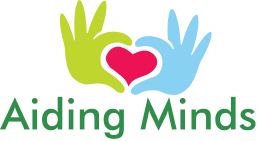PTSD
Post-traumatic stress disorder (PTSD) is an anxiety disorder caused by very stressful, frightening or distressing events.
Someone with PTSD often relives the traumatic event through nightmares and flashbacks, and may experience feelings of isolation, irritability and guilt.
They may also have problems sleeping, such as insomnia, and find concentrating difficult.
These symptoms are often severe and persistent enough to have a significant impact on the person’s day-to-day life.
Read more about the symptoms of PTSD.
Causes of PTSD
The type of events that can cause PTSD include:
- serious road accidents
- violent personal assaults, such as sexual assault, mugging or robbery
- prolonged sexual abuse, violence or severe neglect
- witnessing violent deaths
- military combat
- being held hostage
- terrorist attacks
- natural disasters, such as severe floods, earthquakes or tsunamis
PTSD can develop immediately after someone experiences a disturbing event or it can occur weeks, months or even years later.
PTSD is estimated to affect about 1 in every 3 people who have a traumatic experience, but it’s not clear exactly why some people develop the condition and others don’t.
Read more about the causes of PTSD.
Complex PTSD
People who repeatedly experience traumatic situations such as severe neglect, abuse or violence may be diagnosed with complex PTSD.
Complex PTSD can cause similar symptoms to PTSD and may not develop until years after the event. It’s often more severe if the trauma was experienced early in life as this can affect a child’s development.
Symptoms
The symptoms of post-traumatic stress disorder (PTSD) can have a significant impact on your day-to-day life.
In most cases, the symptoms develop during the first month after a traumatic event. However, in a minority of cases, there may be a delay of months or even years before symptoms start to appear.
Some people with PTSD experience long periods when their symptoms are less noticeable, followed by periods where they get worse. Other people have constant, severe symptoms.
The specific symptoms of PTSD can vary widely between individuals, but generally fall into the categories described below.
Re-experiencing
Re-experiencing is the most typical symptom of PTSD. This is when a person involuntarily and vividly re-lives the traumatic event in the form of:
- flashbacks
- nightmares
- repetitive and distressing images or sensations
- physical sensations – such as pain, sweating, nausea or trembling
Some people have constant negative thoughts about their experience, repeatedly asking themselves questions that prevent them from coming to terms with the event.
For example, they may wonder why the event happened to them and if they could have done anything to stop it, which can lead to feelings of guilt or shame.
Avoidance and emotional numbing
Trying to avoid being reminded of the traumatic event is another key symptom of PTSD. This usually means avoiding certain people or places that remind you of the trauma, or avoiding talking to anyone about your experience.
Many people with PTSD try to push memories of the event out of their mind, often distracting themselves with work or hobbies.
Some people attempt to deal with their feelings by trying not to feel anything at all. This is known as emotional numbing. This can lead to the person becoming isolated and withdrawn, and they may also give up pursuing activities they used to enjoy.
Hyperarousal (feeling ‘on edge’)
Someone with PTSD may be very anxious and find it difficult to relax. They may be constantly aware of threats and easily startled. This state of mind is known as hyperarousal.
Hyperarousal often leads to:
- irritability
- angry outbursts
- sleeping problems (insomnia)
- difficulty concentrating
Other problems
Many people with PTSD also have a number of other problems, including:
- other mental health problems – such as depression, anxiety or phobias
- self-harming or destructive behaviour – such as drug misuse or alcohol misuse
- other physical symptoms – such as headaches, dizziness, chest pains and stomach aches
PTSD sometimes leads to work-related problems and the breakdown of relationships.
PTSD in children
PTSD can affect children as well as adults. Children with PTSD can have similar symptoms to adults, such as having trouble sleeping and upsetting nightmares.
Like adults, children with PTSD may also lose interest in activities they used to enjoy and may have physical symptoms such as headaches and stomach aches.
However, there are some symptoms that are more specific to children with PTSD, such as:
- bedwetting
- being unusually anxious about being separated from a parent or other adult
- re-enacting the traumatic event(s) through their play
Causes
Post-traumatic stress disorder (PTSD) can develop after a very stressful, frightening or distressing event, or after a prolonged traumatic experience.
Types of events that can lead to PTSD include:
- serious road accidents
- violent personal assaults, such as sexual assault, mugging or robbery
- prolonged sexual abuse, violence or severe neglect
- witnessing violent deaths
- military combat
- being held hostage
- terrorist attacks
- natural disasters, such as severe floods, earthquakes or tsunamis
- a diagnosis of a life-threatening condition
- an unexpected severe injury or death of a close family member or friend
PTSD isn’t usually related to situations that are simply upsetting, such as divorce, job loss or failing exams.
PTSD develops in about 1 in 3 people who experience severe trauma. It isn’t fully understood why some people develop the condition while others don’t. However, certain factors appear to make some people more likely to develop PTSD.
Treatment
The main treatments for post-traumatic stress disorder (PTSD) are psychotherapy and medication.
Traumatic events can be very difficult to come to terms with, but confronting your feelings and seeking professional help is often the only way of effectively treating PTSD.
It’s possible for PTSD to be successfully treated many years after the traumatic event occurred, which means it’s never too late to seek help.

Get in Touch
Fill out the form below, one of our team members will be in touch soon.
